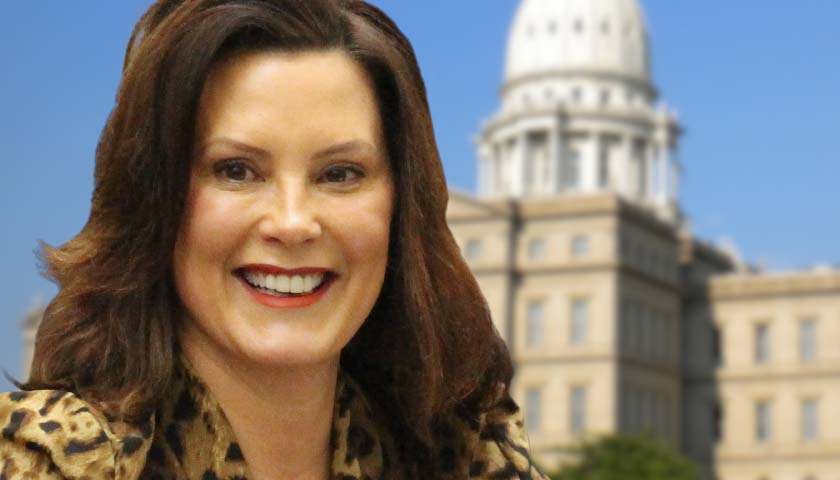by Bruce Walker
Michigan’s governor by executive order has created the “Growing Michigan Together Council,” a team of nearly two dozen she wants to continue economic momentum while also stopping the migration out of state that has dropped population.
Gov. Gretchen Whitmer announced her new initiative Thursday morning, which she said would address the state’s outbound population and spur further economic development. The council will be chaired by John Rakolta Jr., a Republican, and Shirley Stancato, a Democrat.
The council, formed via Executive Order 2023-04, will prioritize developing strategies focused on growing Michigan’s population, including setting specific goals for 2050. Educational priority will be given to preparing Michigan workers for emerging industries and in-demand jobs; improving educational outcomes for prekindergarten through 12th grade; and identifying funding solutions for the state’s transportation and water infrastructure.
Michigan, population just over 10 million, increased incrementally in the 2010s decade though it was 46th of 47 states that were increasing, according to a 2022 Michigan State study of trends.
House of Representatives leader Matt Hall, R-Richland Township, said the council was “heavily skewed,” “a Trojan horse for new taxes,” and throwing “more money at the problem.”
“After four years of failure,” Hall said in his statement, “the governor has no plan to keep young people in Michigan, no excuse for our crumbling roads, and no vision to improve childhood reading levels. She’s doing what every politician does when they have no real plan – create a commission and kick the can down the road.”
Hall recommended the governor “work with the people’s elected representatives in the Legislature.”
The council will be comprised of 21 voting members and seven nonvoting members. Serving with Stancato and Rakolta as voting members will be two House representatives and two senators, as well as the director or director’s designee of the Department of Labor and Economic Opportunity. The council will also include private-sector representatives from labor, workforce development and talent, infrastructure, nonprofit or philanthropy, and education fields. One of the governor’s appointees will be required to be under 25 years old.
Nonvoting members of the council include the state budget director, state treasurer, director of the Michigan Department of Transportation, the chief executive and economic competitiveness officer of the Michigan Economic Development Corporation, the executive director of the Office of Global Michigan, or designees from within their respective departments. Each of the two remaining council seats will be filled by individuals with, respectively, backgrounds in demography and economics.
In a statement, Whitmer said in part, “Over the last few decades, we have seen Michiganders find opportunity elsewhere because jobs and talent have been pushed out of the state. Since taking office, I’ve made it a priority to change that narrative. We’re lowering costs, attracting good-paying jobs, investing in education from pre-school to post-secondary, protecting our natural resources, and expanding fundamental rights.”
– – –
Bruce Walker is a regional editor at The Center Square. He previously worked as editor at the Mackinac Center for Public Policy’s MichiganScience magazine and The Heartland Institute’s InfoTech & Telecom News.
Photo “Gretchen Whitmer” by Julia Pickett. CC BY-SA 4.0. Background Photo “Michigan State Capitol” by Subterranean. CC BY-SA 3.0.








